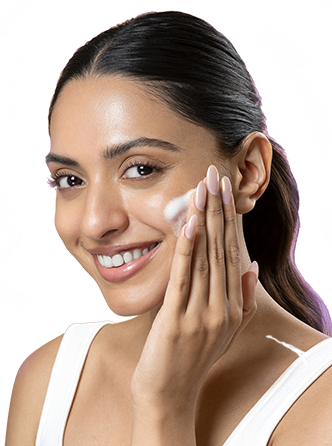
While many people suffer from oily skin on their faces, there are others who have to deal with extremely dry skin. If you are one such individual who has to deal with dry skin, especially during the winter, then face oils are something you should definitely consider.
But, does this mean you shouldn’t or don’t need to use face oil if you have oily or acne-prone skin? Not true. It is just about finding the right type of face oil for your skin. Read on to learn what type of face oil you should use depending on your skin type.
What are Face Oils?
Many plants are abundant with oils and fats in their seeds that are rich in antioxidants and vitamins. These nutrients have the power to nourish and heal the outer layer of your skin when applied.
Face oils are products developed usually from these natural plant extracts. They are made to provide the necessary moisturization that your face needs to keep it hydrated.
What Type of Face Oil Should I Use?
Someone with dry skin should definitely use face oils. People with oily skin should be careful and use the right face oil for them.
The right type of face oil for someone with oily or acne-prone skin:
-Should be high in linoleic fatty acids. They are of a much thinner consistency. They don’t sit on your skin too much and get absorbed quite quickly.
Many studies have shown that people with acne have lower levels of linoleic fatty acids on the surface of their skin. This deficiency of linoleic acid causes your sebum to become thick and sticky, leading to clogged pores.
This imbalance causes your sebum to have a high level of oleic fatty acids. Using face oils that have linoleic acids will help balance out your sebum and prevent breakouts.
Benefits of Face Oils
- Keeps your skin hydrated by locking in moisture.
- Provides an even tone to your skin.
- Maintains and balances the sebum production.
- Anti-inflammatory properties help decrease breakouts.
- Helps to get soft and supple skin with reduced fine lines and wrinkles.
- Has anti-aging effects.
- Comforts sensitive skin and is good for skin conditions like rosacea, eczema, and rashes.
To err is human. It’s especially difficult to avoid mistakes when it comes to skincare. And so is the case with face oils. Here are 5 common mistakes you could be making while using face oils.
Grape Seed & Sea Buckthorn Face Oil for Winter
This blend of 10 natural oils is great for anyone with normal, dry, combination, or very dry skin. Grapeseed oil is known to reduce inflammation and sea buckthorn oil has wound healing properties.
For all our cuties, this product will help restore your skin's natural glow and keep it hydrated. It has a non-greasy texture for easy application and is loaded with antioxidants, minerals, and fatty acids to heal and repair your skin.
The antioxidant-rich formula prevents your skin from losing moisture. This face oil will not only make your face feel good but also your soul when you learn that it is 100% vegan and comes in recyclable packaging.
FAQs
Q1. Which face oil should I use?
If you’re wondering which type of face oil you should choose for your face, the answer lies depending on your skin type.
If you tend to have oily or acne-prone skin, then opt for oils that have a smaller molecular formula, i.e. face oils whose consistency is not too thick. Lighter oils will be absorbed by your skin easily and won’t clog your pores.
If you have dry skin, choose medium to heavy oils in moderate quantities. They’ll take a bit longer to absorb, but are suitable to keep moisture locked in better for skin that gets dried up easily.
Q2. Do I use face oil before or after moisturizer?
Because oil is the heaviest—or the densest—product in your routine, it's able to penetrate your moisturizer, allowing it to reach your skin, but the reverse isn't true. If you want to really amp up the moisture, apply your oil after applying moisturizer onto damp skin. This will help the moisturizer absorb while your face oil seals and adds an extra layer of nourishment.
Q3. Can I use face oils every day?
Yes, you can use face oils every day. You can use a normal face oil in your morning skincare routine and lighter face oil for your nighttime skin regimen.


















